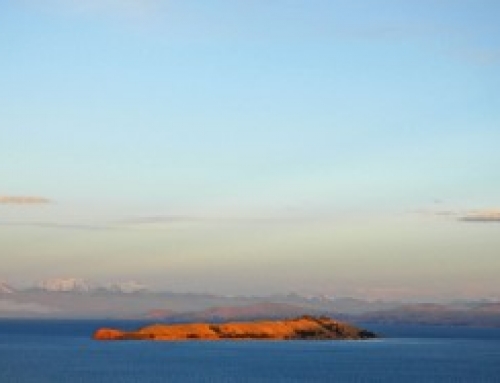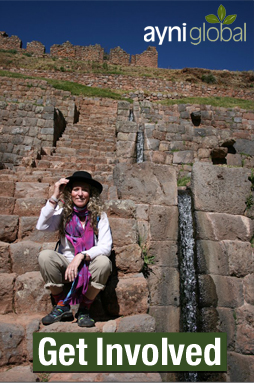Getting poor people, and especially improvised indigenous people out of poverty is difficult. First, it’s important to understand that poverty is not a choice, nor do poor people create it. Poverty is the outcome of a system built over hundreds of years by the politics, power structure and institutions that designed this system. Poverty is perpetuated by the concepts and ideas that we have formulated. It is a condition imposed upon a people.
Indigenous people not only suffer from the consequences of poverty, but also from direct abuses by the system. Conquest and enslavement, the pirating of land, intellectual rights, and resources, have caused complete social, political, and economic disenfranchisement.
There are ways around the consequences of poverty, but none of them are easy. One way is to create an enabling environment for them. In a safe and supportive living situation, they can and do unleash their human potential, freeing up energy that can be used for productive creativity. We have done this in our Ayniwasi building project and I have seen the abundance of energy release by creating an enabling environment.
Once an enabling environment is provided, the next step is to create meaningful employment, as well as provide health care and instructions in public health, and educate children. Indigenous people know the value of purposeful work. In the Andes they grow potatoes and other crops, and herd alpaca and llamas. In the Amazon rainforest, they raise tropical crops like bananas and yucca, and hunt and gather edible and medicinal plants. But, working for money is foreign to them. However, they learn quickly that the system, even at the bottom rungs depends on the earning and exchanging of currency. Without education, language skills, and social preparation they flounder or only earn subsistence wages. When they control the source of their income by starting a social business, they work exceptionally hard and thrive.
A social business, as based on the work of Muhammad Yunus, is one that helps others without making a profit. To be successful, a social business, like any business, must generate enough income to cover expenses. All profit is invested back into the business or channeled into other socially responsible projects like childhood education and health care. The primary purpose of a social business is dedicated to achieving a social goal.
The basic principle of a social business is that it must be self-sustaining. Shareholders are the workers themselves and they do not take a profit. They are paid fairly and work collectively to make the business successful economically and achieve a social goal. Any dividend earned is solely to repay the original investment.
The success of a social business is judged, not by profit and shareholder gain, but by the social outcomes it was created to solve. Though it is outside the profit seeking capitalistic world, a social enterprise utilizes business methods. Because we live in a capitalistic society, the sale of products and services is the main way used by social businesses to earn money.
A social business for indigenous people gives everyone in the community the opportunity to participate, just like they would in growing crops, in creating the kind of lifestyle they deserve. They have the opportunity to mobilize their innate talents and to employ their creativity and skills for solving their own problems, for determining their own destiny, for banishing poverty from their lives by their own efforts, and freeing their children from the damaging effects of generations in poverty.
Muhammad Yunus in Building Social Business, outlines seven characteristics of a social business, of which I paraphrase below:
- The business’ objective is to overcome poverty, or solve problems associated with poverty.
- The business has to attain financial sustainability.
- Any investment returned is for the original investment amount.
- When the investment amount is paid in full, future profit stays in the business for expansion and improvement, or for sponsoring social projects.
- The business will be environmentally conscious and socially responsible.
- Workers are compensated fairly at market wage or better.
- Work has to be joyful and done in a positive manner.
My first years with the Q’ero were devoted to providing food and basic shelter when they were in Cusco. Because I gained experience by living and working among traditional indigenous people since 1967, I introduced meaningful employment right from the beginning. This included fair compensation for their services as shamans and guides. In this way, I taught them the value of their services and the careful management of what they earned.
The second step was to provide shelter while they were in Cusco. We purchased a small lot and they built an adobe house. They were still improvised, had no running water or electricity, but were safe and protected.
The next project was building Ayniwasi, a residential and cultural center. This three-story structure provides an enabling environment. There is running water, bathrooms are connected to the sewer line, and soon electricity will be connected.
Now that Ayniwasi is completed, our next goal is to establish a social ecotravel business owned and run by Q’ero people. The exact business model has not been established, but it will likely be set up as a trust, according to Peruvian law, with proceeds used to benefit the Q’ero community. In this case, Ayniglobal would be the investor. The original investment amount would be repaid by the trust over a period of five years. No interest on the original investment is to be incurred. Any increase in the money given to investors beyond the original amount disqualifies the trust from being a social business.
Over the last eight years, I conducted ten group tours. These tours helped me understand how things work in Peru, develop a network of guides and service providers, and establish connections with larger tour companies to arrange discounted fees for hotels and airfares.
We recently enlisted the services of Lisa Sims, who not only has a career in business, but has been the general manager for a boutique hotel in Cusco. She currently lives in Cusco. Lisa will be the director of operations in Peru.
Peter Tanner is our advisor on the travel industry. Peter live in Paris, France and runs tours for two of the largest tour companies in Europe. They have also expanded into Peru. He brings decades of experience in organization skills, customer service, and creative solutions to educational and socially responsible travel.
The visualization stage for the tour company was initiated in June 2012. We started the organizational stage in January 2013 with several meetings with Peter and Lisa. The Q’ero will be involved in the launch of the company right from the beginning. In fact, in 2012 they requested Ayniglobal to help create a tour company that is Q’ero owned and Q’ero run. I agreed that they need better control over how their services are used and how they receive income from these services.
We have a lot of work ahead of us, but the power of a successful social business is its potential greater impact on social goals. This enterprise is a major step towards self-reliance for the Q’ero. Many more projects and businesses will follow, especially in the areas of sacred medicine and health care. Ayniglobal is proud to partner with the Q’ero in a social business where they actively participate in the free-market economy. A successful enterprise will be enormously empowering. It will lead to genuine, long-term solutions to the problems of poverty, inequality, racism, and oppression of indigenous people.



Leave A Comment